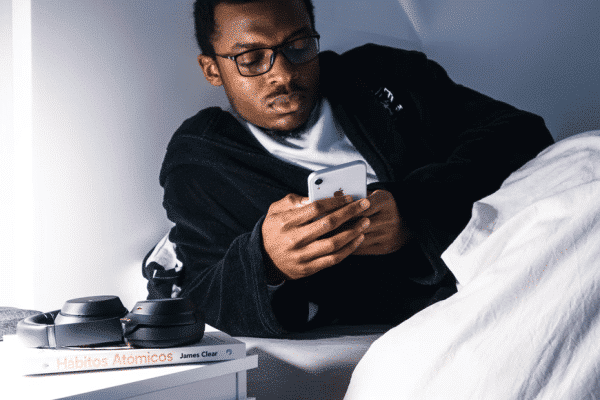Imagine this scenario: It’s late at night. You’re dead tired and hop in bed after a long day of work, chores and other tasks.
However, instead of closing your eyes and getting your much-deserved zzz’s, you decide to do something else: You scroll through your social media feed, watch an entire season of a show on Netflix or do some impulse online shopping on Amazon Prime. Before you know it, it’s 3 AM and you have to wake up at 7 AM and go back to work. You curse at yourself, knowing it’s going to be an exhausting day ahead.
If this sounds familiar, you are not alone. Many people these days are engaging in this counter-intuitive bedtime behavior and it even has a name: “revenge sleep procrastination”.
What is Revenge Sleep Procrastination?
Revenge sleep procrastination is a modern phenomenon where one goes to sleep later than intended due to no external circumstances, unnecessarily delaying bedtime without a practical reason at one’s own expense. It is a way of finding some ‘me time’ for leisure and entertainment by subtracting it from time for sleep.
As a result, we end up exhausted the next morning.
This purposeful delay of sleep is a common phenomenon that affects most age groups: adolescents, college students, and adults. Procrastinating sleep is something many of us do occasionally, but people who have high-stress lives, such as those who work long hours or parents with little time to themselves, are those who frequently engage in this behavior.
This circumstance has since been exacerbated during the COVID-19 pandemic -- due to the blurred lines between work and home life. A feeling of lack of control and lack of time are common culprits behind this behavior. In turn, the rough mornings contribute to an increase in anger, frustration and guilt.

Also Read: Sleep Tips for Shift Workers
Tips to Avoid Bedtime Procrastination
Procrastinating sleep often starts small -- and creates a vicious cycle that worsens if not corrected immediately. It can develop into sleep disorders, such as insomnia, or various mental disorders, such as depression.
To stop procrastinating going to bed, here's what you can do:
- Improve your bedtime habits and sleep hygiene.
- Work on your self-control. Increase your internal motivation and make sleep a priority.
- Develop a consistent and calming sleep routine by going to bed and waking up at the same time.
- Avoid alcohol, caffeine, and screen exposure close to bedtime.
- Improve your sleep environment. Keep the bedroom exclusively for sleep only.
- Keep your circadian rhythms consistent and limit your exposure to bright light. Use dim light in the evening and keep the temperature cool.
- If the condition has progressed, cognitive behavioral therapy is one of the best treatments.

COVID-19 has seen the workforce pivot to work-from-home, so it is important we maintain a strict schedule and create boundaries between work and home life. When the work hours are over, they are over -- time to put work-related stuff and the laptop away.
Make time for yourself and your sleep.
Sign Up for Exclusives & Updates
Knowledge is power: it’s important to educate yourself and to prioritize sleep for your health and quality of life. Check out our blog to know more about sleep:
- Do Sleep Problems Run in the Family?
- Sleep and Stress: What’s the Connection?
- Tips for Better Sleep with Cerebral Palsy
Better sleep means a better life. To get the latest information on sleep and other interesting information, sign up to get notified about new blog updates!
Sign Up for Exclusives and Updates
Invest in rest. A better sleep means a better life. To get the latest information on sleep science and other interesting info, click below to get notified about new blog updates!
Note: Some posts contain affiliate links and Majestic Beds may earn a commission if you click through and buy something from a third party retailer.
